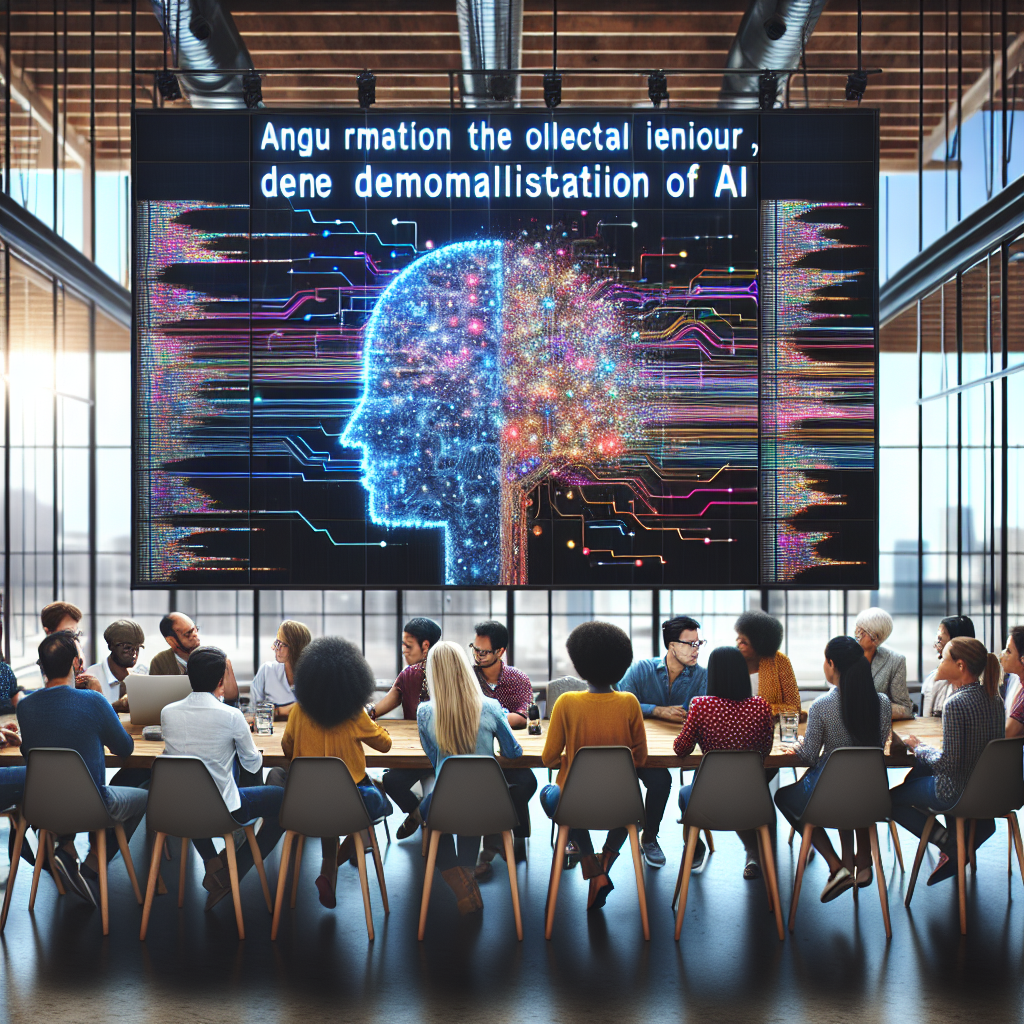The Democratization of AI: Building a More Inclusive Society
Artificial Intelligence (AI) has become an integral part of our daily lives, from the recommendations we receive on streaming platforms to the personalized advertisements we see on social media. AI has the power to transform industries, improve efficiency, and drive innovation. However, there is a growing concern that AI technologies are being developed and deployed in a way that may exacerbate existing inequalities and exclusion.
The democratization of AI is a movement that seeks to make AI more accessible, inclusive, and equitable for all members of society. By democratizing AI, we can ensure that the benefits of this powerful technology are shared by everyone, not just a select few. In this article, we will explore the importance of democratizing AI, the challenges that need to be addressed, and the potential benefits of building a more inclusive society through AI.
Importance of Democratizing AI
AI has the potential to revolutionize industries, from healthcare to transportation, by improving decision-making processes, optimizing operations, and driving innovation. However, the development and deployment of AI technologies have been largely controlled by a small group of companies and researchers, leading to concerns about the concentration of power and wealth in the hands of a few.
Democratizing AI is crucial for ensuring that the benefits of AI are widely distributed and accessible to all members of society. By democratizing AI, we can empower individuals, communities, and organizations to harness the power of AI to address pressing social challenges, drive economic growth, and promote social inclusion.
Challenges in Democratizing AI
Despite the potential benefits of democratizing AI, there are several challenges that need to be addressed in order to achieve a more inclusive society. Some of the key challenges include:
1. Access to Data: AI algorithms rely on large amounts of data to learn and make predictions. However, access to high-quality data is often limited to a small group of companies and organizations. In order to democratize AI, we need to ensure that data is accessible to a wider range of stakeholders, including individuals, communities, and small businesses.
2. Bias and Discrimination: AI algorithms can perpetuate existing biases and discrimination if they are trained on biased data or designed without considering the impact on marginalized groups. In order to build a more inclusive society through AI, we need to develop algorithms that are fair, transparent, and accountable.
3. Skills and Education: The field of AI is rapidly evolving, and there is a growing demand for skilled AI professionals. However, access to AI education and training is often limited to those who can afford expensive courses or have access to top-tier universities. In order to democratize AI, we need to provide opportunities for individuals from diverse backgrounds to learn about AI and develop the skills needed to work in this field.
Benefits of Building a More Inclusive Society through AI
Building a more inclusive society through AI has the potential to bring a wide range of benefits, including:
1. Economic Growth: By democratizing AI, we can empower individuals, communities, and organizations to leverage AI technologies to drive economic growth and create new opportunities for innovation and entrepreneurship.
2. Social Inclusion: AI has the potential to address pressing social challenges, such as healthcare disparities, educational inequality, and environmental degradation. By democratizing AI, we can ensure that the benefits of AI are shared by all members of society, not just a select few.
3. Empowerment: By democratizing AI, we can empower individuals to make informed decisions, access new opportunities, and participate in the digital economy. AI can be a powerful tool for promoting social inclusion and empowering marginalized communities.
Frequently Asked Questions (FAQs)
Q: How can individuals contribute to the democratization of AI?
A: Individuals can contribute to the democratization of AI by advocating for policies that promote transparency, accountability, and inclusivity in AI development and deployment. Individuals can also educate themselves about AI technologies and their potential impact on society.
Q: What role do policymakers play in democratizing AI?
A: Policymakers play a crucial role in democratizing AI by developing regulations and guidelines that promote fairness, transparency, and accountability in AI development and deployment. Policymakers can also invest in AI education and training programs to ensure that individuals from diverse backgrounds have the skills needed to work in this field.
Q: How can organizations promote diversity and inclusion in AI?
A: Organizations can promote diversity and inclusion in AI by building diverse teams, ensuring that AI algorithms are designed with input from diverse stakeholders, and conducting regular audits to identify and address bias in AI systems. Organizations can also prioritize ethical considerations in AI development and deployment.
Q: What are some examples of AI technologies that are being used to promote social inclusion?
A: There are many examples of AI technologies that are being used to promote social inclusion, such as AI-powered chatbots that provide support to individuals with mental health issues, AI algorithms that help identify and address bias in hiring practices, and AI systems that analyze satellite imagery to monitor environmental degradation in marginalized communities.
In conclusion, the democratization of AI is essential for building a more inclusive society where the benefits of AI are shared by all members of society. By addressing the challenges of access to data, bias and discrimination, and skills and education, we can empower individuals, communities, and organizations to harness the power of AI to drive economic growth, promote social inclusion, and empower marginalized communities. By working together to democratize AI, we can create a more equitable and just society where everyone has the opportunity to thrive.

